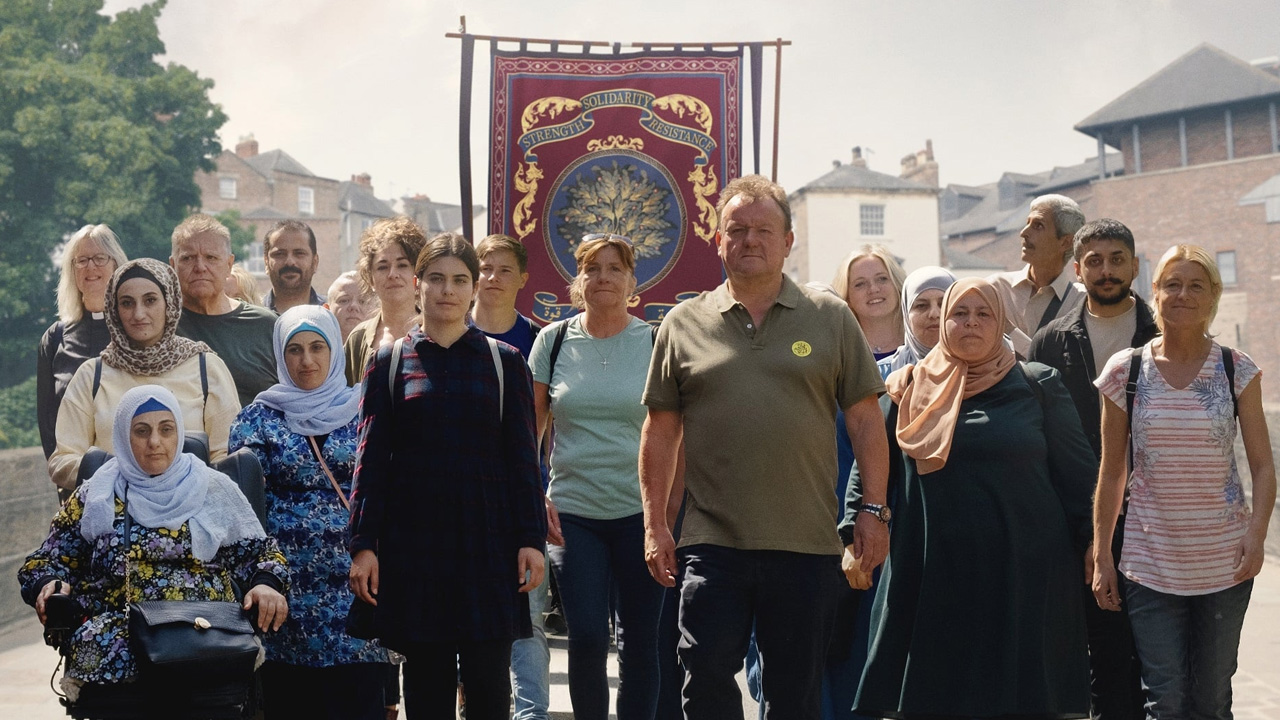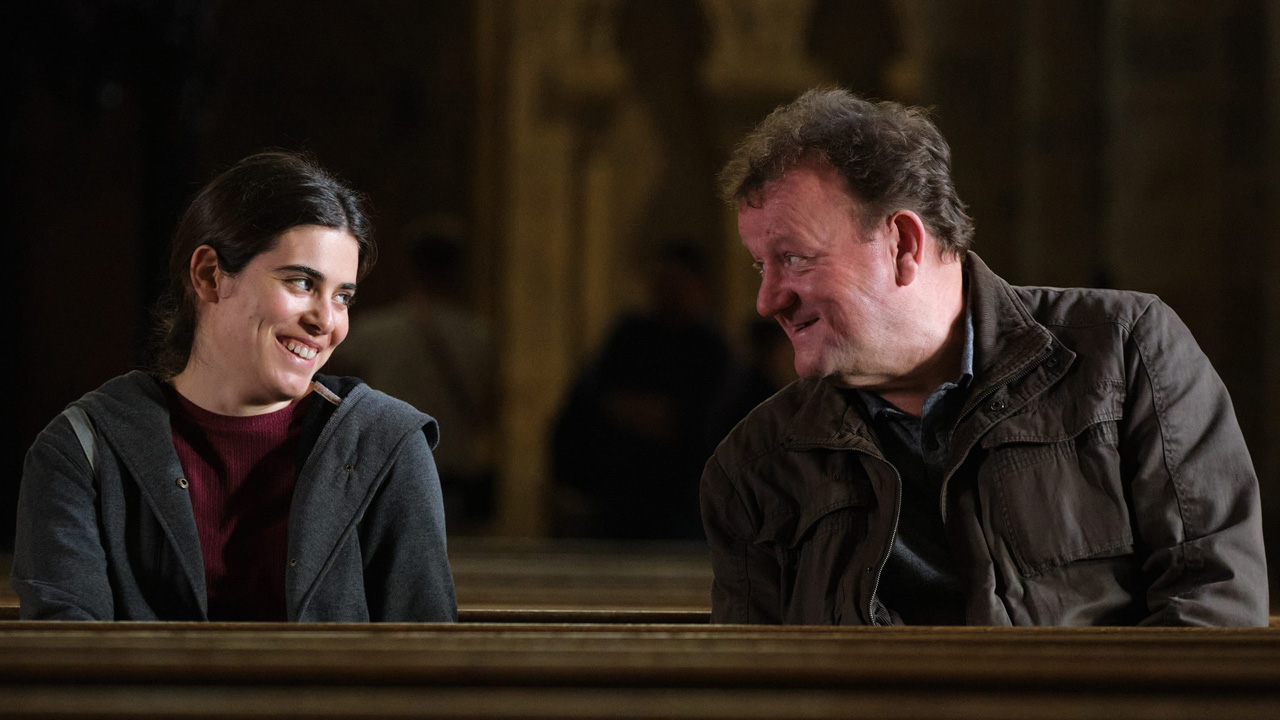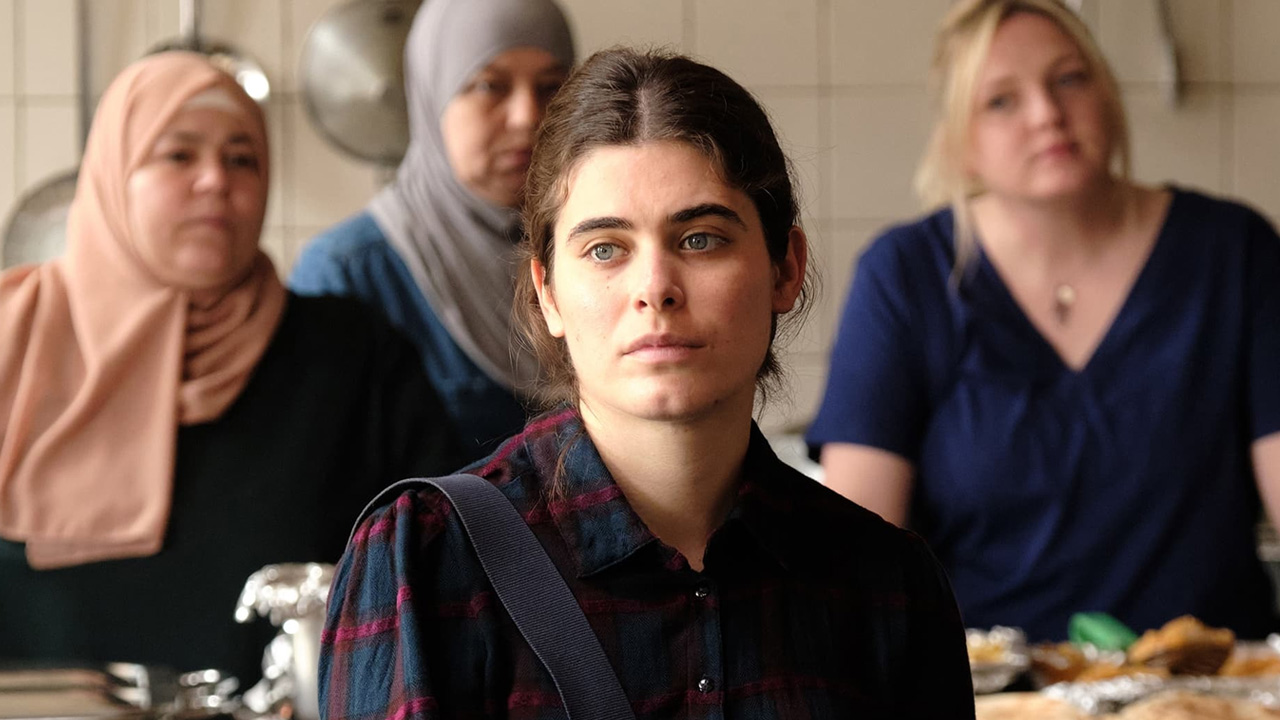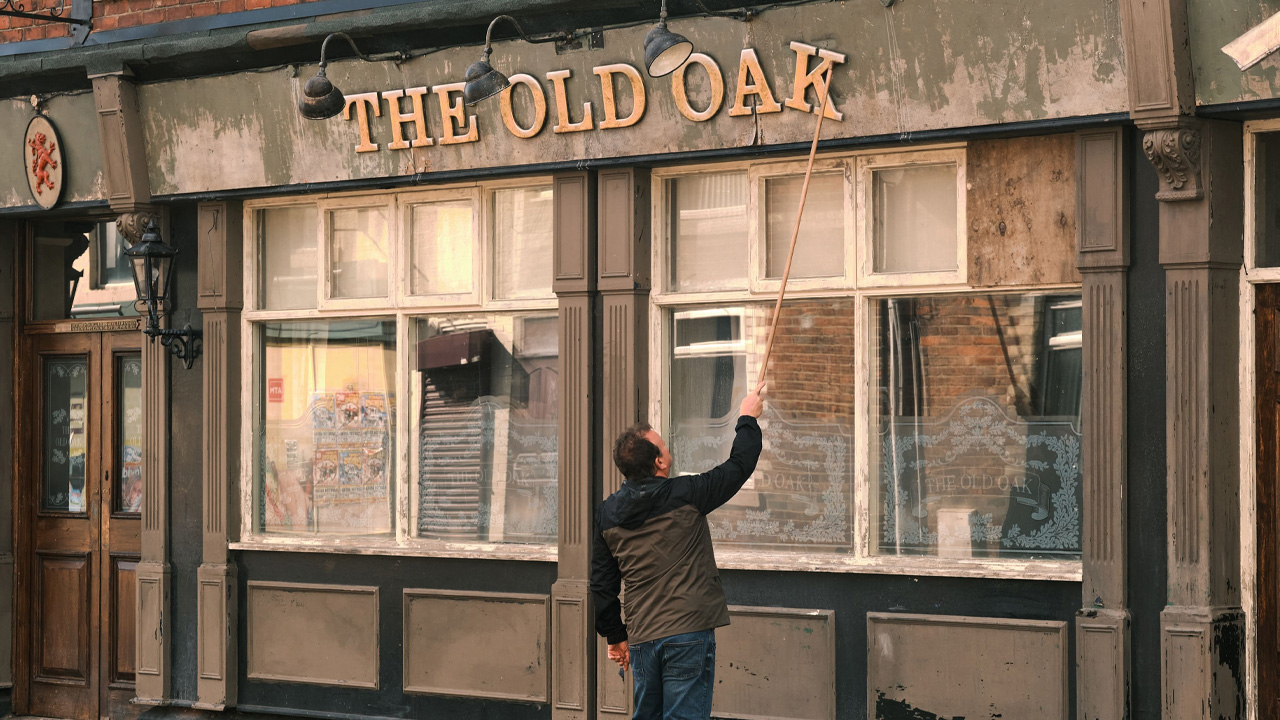The Old Oak is the perfect send-off for master filmmaker Ken Loach

The great Ken Loach and his regular writer Paul Laverty reunite for The Old Oak, a Palme d’Or-nominated drama centred on the last remaining pub in an area that’s become ideal for housing Syrian refugees. It might not be a masterpiece, but to Liam Maguren, it’s the perfect send-off for Loach’s career.
The Old Oak
Swansongs come loaded with expectations, especially for master filmmakers who are perhaps unfairly assigned with leaving us another masterwork before they fold up the director’s chair. With an impactful filmography buoyed by two Palme d’Or winners (The Wind that Shakes the Barley & I, Daniel Blake), 87-year-old Ken Loach reportedly closes his career with The Old Oak—a refugee drama that will probably not be remembered as a masterpiece.
Not that it has to be a perfect film to be the perfect sendoff for a filmmaker so admirably dedicated to illustrating injustices and the human condition. Despite some clunky cliches and wobbly sentimentality, The Old Oak‘s compelling depiction of everyday people fighting for unity still demonstrates the best of Loach’s contagious sense of compassion.

The story centres on a mining village in Northeast England economically ravaged by the unmoved beast of capitalism. With no way of voicing their concerns to the faceless landlords snapping up their neighbourhoods and devaluing their properties, longtime locals fear they’re losing everything. When Syrian refugees—people who have actually lost everything to war—arrive, suddenly they see faces to blame.
Some locals lean into racist attitudes as a fallacious means of regaining the power they’ve lost. Others see this as a perfect opportunity to justify the xenophobic beliefs they always had. Loach and longtime writer Paul Laverty wield their cast and script superbly to highlight these shades of hate and how they clump together with a common goal: division.
Poor TJ (a wonderfully subdued Dave Turner) has to listen to one such group, his regulars at the titular pub he manages, riling each other up like a Facebook comments section performed live. Though he spends his spare time helping his new Syrian neighbours adjust to life in their village, he dares not speak up to his hate-fuelled customers who have been keeping his business afloat for decades.

Soon enough, TJ reaches a fork in the road. Yara, a refugee played with tremendous warmth by theatre teacher-turned-breakout star Elba Mari, is keen on using The Old Oak to bring everyone together for a free shared meal, solidified by the adage: “When you eat together, you stick together.” The pub lads want to use it as a town hall so they can continue to say awful things like, “This has become a dumping ground!” Does TJ sell his soul to play kind to his customer base, or does he do the right thing at the risk of becoming another target of their growing hatred?
Needless to say, there are consequences. Loach’s effortless ability to derive authentic performances from his actors (and non-actors) powers the conflict, placing the recognisable best of humanity next to the recognisable worst. More impressive is the film’s ability to show how easily it is for anyone to fall to either side of those extremes, with some moving from annoyance to cruelty, and others sliding from intolerance to neighbourly.

At its best, The Old Oak grounds this complexity into something both deeply compelling and easily understandable. It’s also a slight shame, then, that some tired storytelling tropes temporarily shake you out of the experience.
The most egregious cliche, one that I’ve personally barked on about for close to a decade, cannot even be hinted at. The moment I mention the character, you’ll know their fate immediately. It’s that obvious. I will say the trope has often been used as a cheap grab for sympathy, and The Old Oak doesn’t do it much better with it.
The ending also doesn’t land quite as cleanly as expected. It involves a large crowd driven to act, but the scene would have felt more convincing had we seen these nameless people interacting with the Syrians beforehand. As it stands, it feels more like a moment that the script needed to happen, rather than an organic consequence of everything we’d seen.

So, no, The Old Oak isn’t a masterpiece, especially when compared to Loach and Laverty’s previous two outstanding features I, Daniel Blake and Sorry We Missed You. Load that into your expectations though and The Old Oak will go down smoother as a heart-opening message movie that uses shared traditions between Syrians and old miners as a road map to solidarity.
It’s hard to imagine Loach would even put ‘career perfection’ ahead of telling a story that he feels needed to be told. Hearing Loach reflect on the movie with FilmInk, it’s easy to believe that The Old Oak makes for a fitting capper to his incredible career as a humanitarian filmmaker: “It’s in the people, you see… there is the old miners’ tradition of solidarity. When you’re in trouble, we all eat together. It’s very much ‘we support each other’ and there’s a strength in that… Once they get to see each other, they sit alongside each other and laugh. That’s the hope in the film. We have that within us. ‘You’re in trouble, I’ll give you a hand. I’m in trouble, you’ll pull me up’. That’s waiting to be expressed. It’s what we hope.”



















